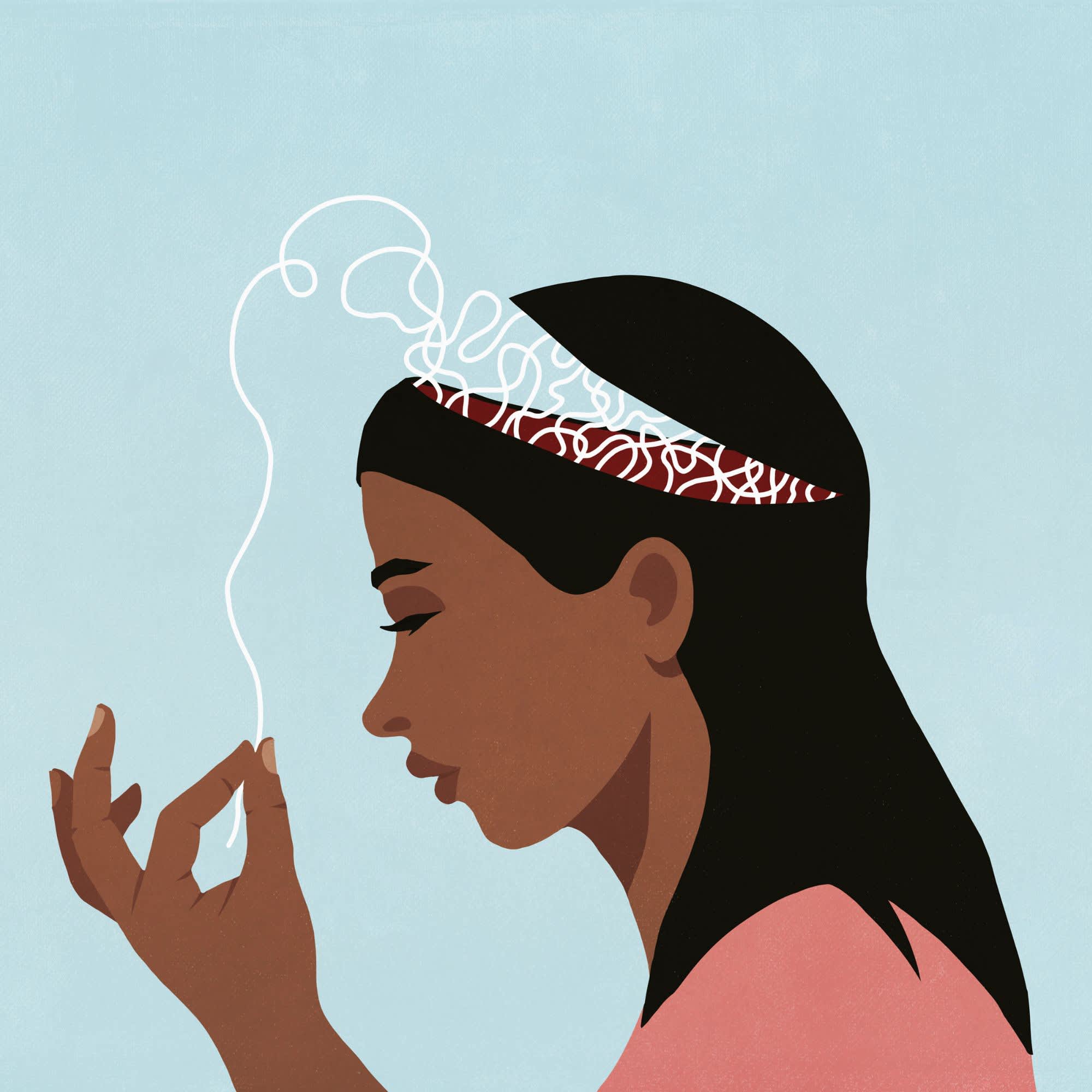
- POPSUGAR Australia
- Fitness
- RUOK, Really? Here’s How to Check in With Your Mental Health
RUOK, Really? Here’s How to Check in With Your Mental Health

R U Okay Day. It’s a day in the calendar that can be… kind of tough if you’re actually not doing okay.
While that’s rough, it’s also totally understandable. In the last two years, we’ve survived — if not thrived — through pandemics, bushfires, mouldy El Nina, and an anxiety-inducing international news cycle. Plus, we’ve got our third Mercury in Retrograde of 2022 headed our way.
If you’ve fielded a couple of unsolicited questions and found you’re actually not doing as hot as you thought you were, we spoke to psychotherapist Maria Bui at Rough Patch Counselling about steps you can take.
Don’t Beat Yourself Up For Feeling “Not Okay”
Something that’s worse than feeling bad? Beating yourself up for feeling bad. It’s not helpful, but we all do it. According to Bui, that’s because we think about mental health and mental illness in a binary way.
“Mental wellbeing is a spectrum,” she explains, “but we often think about it as being ‘mentally ill’ or ‘normal.”
The truth is, while some might have a propensity to mental ill-health because of genetics or traumatic life experiences, close to half of Australians will experience a mental illness in their lifetime, according to the Black Dog Institute.
“Mental health issues can impact everyone,” says Maria Bui. “Things like loss, grief or major change can be triggers, and everyone will experience them in their lifetime.”
Related: 5 Steps For Finding the Right Therapist, Straight From the Experts
So, what can we do? When it comes to mental health, prevention is always better than treatment. “We take precautions and preventative measures when it comes to our physical health,” she tells POPSUGAR Australia, “why should our mental health be any different?”

Look at Your Current Habits:
So, need a lesson in building resilience 101? According to Bui, the first step starts with self-awareness. “Being aware of your behaviours and how they make you feel will help you be proactive,” says Bui. Minor habits — like sleeping through your 6am pilates class, or ordering Uber Eats three times a week — are micro-behaviours can have macro impacts on your mental wellbeing over time.
“Consistently reflecting on your current habits and your feelings will help you understand whether they are contributing to poor mental health outcomes,” says Bui.
While these behaviours might seem obviously negative written down, Bui says they are often “unconscious” in the moment.
“When you don’t take the time to reflect, you can miss out on the opportunity to change unhelpful habits,” says Bui.
Related: Timothée Chalamet Says It’s “Tough to Be Alive” in a Social Media-Dependent World
Identify Your Self-Care Needs:
Once you’ve “zoomed in” on bad habits, think of more positive habits you can replace them with. Bui says prioritising self-care is essential — but it looks different to everyone.
“Everyone has unique needs, so take time to think about what self-care means to you,” says Bui. This could mean communicating boundaries with specific people in your life, or protecting your physical and mental wellbeing with healthier habits. While self-care has become “trendy,” it’s critical, and sometimes you need professional help.
Don’t Be Afraid to See a Professional:
Whether you’re in crisis or just overwhelmed, thinking about self-care rituals that don’t involve sleeping in until 12pm and eating Messina can feel impossible.
That’s why mental health professionals spend a lot of time with clients building what Bui refers to as “self-care toolkits.” These can be anything from physical practices, affirmations or concepts that help you reset negative thinking patterns — the important thing is that you have a toolkit to turn to when things get tough.
“A toolkit means you can communicate your needs to others and manage negative emotions that might impact your ability to go about your day,” says Bui.
Maria Bui is a psychotherapist at Rough Patch where she specialises in helping young people who are navigating their identity and life goals (ages 16 up); major life changes or transition periods; building resilience, self-esteem and confidence; building healthy relationships, She also specialises assisting those with culturally diverse backgrounds navigating generational cultural differences. Can work with Vietnamese-speaking clients.



